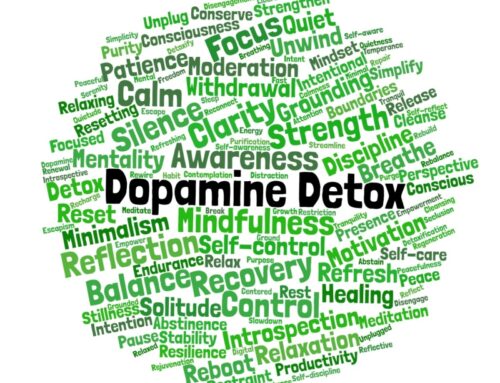Intermittent fasting is a general term used to describe a variety of approaches that change the normal timing of eating throughout a day with short-term fasts used to improve overall health. In other words, intermittent fasting is an individual periodically fasting for a longer duration than the typical overnight fast.
Let me start by saying that I’m a fan of intermittent fasting. I think going for extended periods without eating was probably normal for humans throughout most of our history. I have also seen enough evidence to convince me that it can help with everything from weight loss to improving insulin sensitivity to boosting the immune system. I believe that man was created perfectly, and for most of our existence there were no grocery stores, restaurants, or convenience stores, making food not nearly as readily available or easy to come by as it is today. Nor were there watches, schedules, lunch breaks, or the kind of structure and routine for centuries that we now have in the modern world. This means it’s likely that humans often did go 12-16 hours between meals on a regular basis and perhaps had full days when they ate lightly or didn’t eat at all.
Intermittent Fasting & Weight Loss
 Intermittent fasting has been shown in several studies to decrease body weight and body fat percentage. I have seen first-hand with some patients a remarkable weight loss in only a few weeks after they started intermittent fasting. Even patients who wanted to only change body composition (gain muscle, lose fat) found that intermittent fasting was a great tool for fast change. Research again shows evidence that intermittent fasting causes a favorable shift in metabolism that preserves muscle.
Intermittent fasting has been shown in several studies to decrease body weight and body fat percentage. I have seen first-hand with some patients a remarkable weight loss in only a few weeks after they started intermittent fasting. Even patients who wanted to only change body composition (gain muscle, lose fat) found that intermittent fasting was a great tool for fast change. Research again shows evidence that intermittent fasting causes a favorable shift in metabolism that preserves muscle.
Here is why:
During the most common fasting duration of about 18 to 24 hours, our cells shift from using glucose as their primary fuel source to using fat. This means that our fat stores, namely triglycerides, are broken down and used for energy. The breakdown of proteins for fuel does not begin until the third day of fasting. Thus, intermittent fasting remains an option for optimizing health even in those wanting to maintain or gain muscle mass.
Clinical Note: The optimal intermittent fast for weight loss appears from research to be longer than 18 hours but shorter than 48 hours.
Improved Cardiovascular Disease Risk Profile
Several studies show intermittent fasting may lead to a reduction of total cholesterol by about 20 percent. Not only does LDL (bad cholesterol) decrease by about 25 percent after eight weeks on an alternate daily fast, but even better, we actually see a decrease in small LDL particles. And remember, small, dense LDL particles are associated with an increased risk of cardiovascular disease when compared with an equal number of large, fluffy LDL particles.
We also see decreases in triglycerides by as much as 32 percent below levels measured prior to implementing intermittent fasting, and there is no significant decrease in HDL (good cholesterol).
Patient Testimonial: Jim Helm
“I started fasting because my lipid panel doctor suggested I use fasting as a way to correct my bad blood numbers. I started fasting 24 hours at a time, two days a week. After correcting my blood numbers and 20 pounds of weight loss I went to one meal a day. Now I how have gone back to eating lunch and dinner every day. No breakfast. The beauty of fasting is it saves you money, and all you have to do is not eat! Please read the book titled ‘Fasting’ by Dr. Jason Fung.”
Intermittent Fasting & Inflammation
Intermittent fasting has been shown to decrease inflammatory markers associated with inflammatory and degenerative diseases. This includes those that are associated with brain health. Intermittent fasting may improve motor coordination and learning response and decrease in oxidative stress. These are all commonly negatively affected by age but intermittent fasting appears to reduce the aging process. Other studies have also shown interesting improvement in mood and depression. This sounds strange to me because I can get in a bad mood and become depressed when I unintentionally miss a meal.
Intermittent fasting is not for everyone.
There can be risks associated with intermittent fasting, and I would strongly recommend that it be pursued with guidance. Intermittent fasting should always be avoided during pregnancy and breastfeeding. It should also generally be avoided during times of increased stress that contribute to Adrenal Fatigue Syndrome, or more precisely, hypothalamic-pituitary-adrenal (HPA) axis dysfunction.
Those who are going through a high stress period in their life at home or at work should avoid intermittent fasting as it can wreck your metabolism and natural sleep patterns. I haven’t arrived at this notion by combing through the research literature, but through direct experience with patients in my clinical practice. Often during these time periods of high stress the normal hormonal patterns are skewed. This creates a drastic change in sleep patterns and blood sugar levels, causing them to become very erratic. Waking up at 2am, cold feet and hands, and high fasting blood sugar levels are some of the signs of adrenal fatigue and high levels of cortisol during prolonged stressful time periods.
Fasting can further elevate cortisol levels. One of cortisol’s effects is that it raises blood sugar. So in someone with blood sugar regulation issues, fasting can actually make them worse. Often these patients have a fasting blood sugar levels in the 90s or above in spite of the fact that they are eating a healthy low-carb diet.
That’s why I don’t recommend intermittent fasting for people with blood sugar regulation problems. Instead, I suggest that they eat every 2-3 hours. This helps to maintain stable blood sugar throughout the day and prevents cortisol and other stress hormones like epinephrine and norepinephrine from getting involved.
When stress levels have returned to normal, blood sugar regulates, sleep patterns normalize then the patient is ready to resume intermittent fasting. Even exercise can be resumed and can coincide with the intermittent fasting safely.
How to Start Intermittent Fasting
Intermittent fasting is more of a pattern of eating than a diet. Certainly, clean healthy eating should be the foundation of any eating pattern, and with intermittent fasting it is even more important. The basic pattern is to eat for 8 hours during the day and to fast for 16 hours of the day. For most people eating breakfast and lunch and fasting from 3pm until 7am the next morning is a very workable schedule. I generally suggest this as a way to start for most as the bulk of the fasting occurs while you are sleeping. I have had some patients that found skipping breakfast and eating only lunch and dinner to be easier. The pattern you choose is not as important as being consistent with your pattern.
Intermittent fasting can be performed one day a week, every other day, or even everyday for several weeks. The important thing to remember is that fasting can stress the body and it is very important to avoid long periods of stress on your body. The bottom-line is to find a consistent pattern that works with your body, life, and mindset. If you have been able to fast and wish to try a longer fast of 24-48 hours make sure to carefully watch your energy levels, attitude, and blood sugar signs for stress and adrenal fatigue.
Look to start fasting on days that your schedule is full and your mind is occupied. It will help to reduce the cravings and keep your spirits high. Also, remember to hydrate throughout the day. Water with a fresh squeezed lemon can help to prevent hunger pains and will assist with fat loss.
Supplement Corner
Bone Broth- If you are looking to fast but still want to get some much needed nutrients, including protein, try bone broth. Many patients have found that just a scoop of bone broth in hot water is enough to keep them energized and at only 110 calories, it will not alter their fast dramatically. (28g of protein, 0g of carbs, 0g of sugar).
L-glutamine- L-glutamine is the most widely used amino acid in times of high stress and muscle repair. When fasting, protecting your muscle mass is key to achieving optimal body composition. L-glutamine protects against muscle loss while fueling the immune system when you are fasting. I highly recommend this product for those who wish to do frequent or prolonged fasts.
Learn more at our free class.
Do you want more information on metabolism and weight loss? Join us at our free Weight Loss & Metabolism workshop March 28 at 6:00pm. Registration is required, and space is limited, but the workshop is free! Email us or stop in to register yourself and a friend.

Daryl C. Rich, D.C., C.S.C.S.






